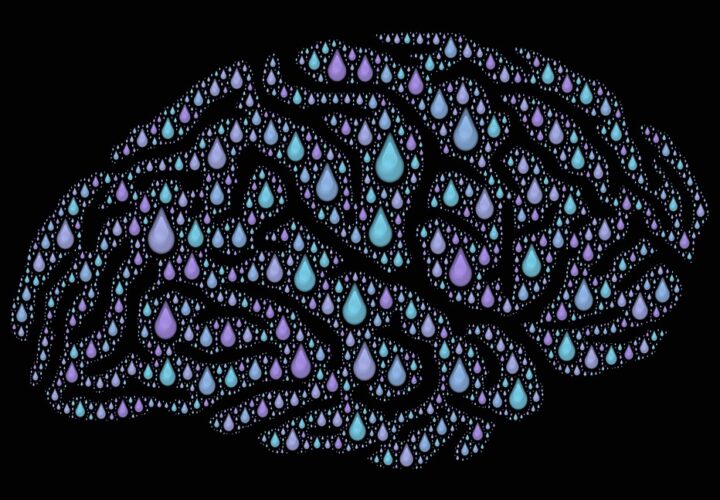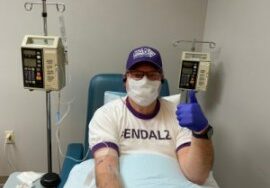Approximately 5 million older Americans have Alzheimer’s disease, a condition that appears in one’s later decades. But a rarer version of the disease, known as early onset Alzheimer’s, may make itself known at a much younger age.
Early onset Alzheimer’s disease typically begins to appear between the ages of 45 and 64. It is estimated to affect between 220,000 and 640,000 Americans. For those concerned about the possibility of developing early onset (which is also known as younger onset), experts advise using the old standby of “see something, say something.”
If you see something amiss with your loved ones, they say, seek medical advice. And because many doctors are not specially trained in spotting early signs of Alzheimer’s, be persistent with your concerns. Here are some of the main symptoms of early onset Alzheimer’s to look out for if you’re concerned about your or a loved one’s cognitive health at a younger age.
Symptoms Appear Before Age 60
Perhaps the biggest defining sign of early onset Alzheimer’s is the timing of the symptoms first appearing. The most common form of Alzheimer’s, late onset Alzheimer’s, typically begins showing signs when a person is in their 60s.
Early onset Alzheimer’s, meanwhile, can start taking effect as early as your 30s and 40s. Typically, patients are diagnosed with early onset Alzheimer’s in their 40s or 50s.
Dr. James Ellison of the Swank Memory Care Center at Christiana Care Health System in Delaware writes that the majority of early onset Alzheimer’s disease does not run in families. Some families, however, do have a genetic mutation that almost guarantees development of early onset Alzheimer’s.
In an interview, Dr. Ellison said that people in their 40s and 50s should not be experiencing the so-called 10 warning symptoms of Alzheimer’s. If they are, they may have the early onset version of the disease.
“In your 40’s and 50’s you should not be experiencing these symptoms,” Ellison said. “If you know something is wrong, keep looking for doctors or others who have the knowledge to treat you.”
Forgetfulness and Memory Loss
While forgetting where you placed your car keys may commonly occur with anyone at any age, and perhaps a bit more as you age, persistent forgetfulness or lapses in memory is typically a sign that something is wrong. For people with early onset Alzheimer’s, they may begin noticing abnormal and chronic lapses in memory as early as their 30s or 40s.
If you’re missing where you are and how you got there, struggling to find the right words when conversing or consistently forgetting what your partner asked you to do, yet you feel as if you’re too young to be experiencing these things, you may be developing some signs of early memory decline.
Attention and Language Impairment
While memory challenges can be involved in early onset Alzheimer’s, signs that something could be wrong can be much broader. In fact, experts note that memory loss, which is closely associated with Alzheimer’s, may actually be less prominent in people with early onset Alzheimer’s.
Instead, people with early onset Alzheimer’s often complain about difficulties finding words in conversation. They can experience problems with attention and orientation, as well as with simple math.
“In the aggregate, patients with early-onset Alzheimer’s Disease, compared to similarly impaired patients with late-onset Alzheimer’s Disease, have better memory recognition scores and semantic memory but worse attention, language, executive functions, ideomotor praxis, and visuospatial skills,” a research paper by Dr. Mario Mendez noted.
Personality Changes and Mood Swings
Loved ones may notice changes in personality and mood swings. They may see their formerly hard-driving wife suddenly complaining of being tired all the time and not being able to juggle as much as she had previously.
Withdrawing from Work and Social Life
People with early onset Alzheimer’s, who were once industrious and focused at their challenging jobs, may begin noticing a drop in concentration, motivation or productivity that’s out of character for them. They may also find themselves isolating from family, friends, coworkers or hobbies that they used to previously enjoy.
Addressing Early Onset Alzheimer’s Symptoms
Fortunately, there are ways to begin treating some of the symptoms of early onset Alzheimer’s once it’s been identified, and there are ways of coping with the disease.
Family members may often have to advocate for their loved one if they’re experiencing these symptoms at a young age. That’s because primary care doctors, Ellison said, often do not have the specialized training to understand early symptoms of dementia and they typically have less and less time to spend with their patients.
It’s critically important for families to persist, he said, because other treatable diseases may be causing dementia-like symptoms. Untreated attention disorder deficit, Ellison said, can often look like early dementia. In other cases, gastrointestinal issues cause dementia-like symptoms or multiple medications may be causing a negative reaction.
The first step is to check in with your doctor and ask for a memory or cognition test. Once you or your loved one has been assessed, your primary care doctor should refer you to a dementia specialist to run further tests and ultimately arrive at a diagnosis.
Being able to diagnose the disease early on can help your doctor tailor a treatment plan that may help slow the progression of the disease.
One critical reason to address early signs of dementia is the fact that Ellison and other experts say changes in lifestyle—diet, exercise and other steps—can help delay onset of full dementia.
For example, many people living with early onset Alzheimer’s can continue to live fulfilling and active lives involving exercise routines and social support. In one case, a man named Peter Berry got on his bicycle and rode 350 miles to prove you can still live life with an early onset Alzheimer’s diagnosis.
In recent research, scientists found that a personalized, tailored prevention plan—taking into account sleep, exercise, diet, supplements and socializing—showed signs of improving brain health.
For those who have received an early onset Alzheimer’s diagnosis, all is not lost: Talk to your dementia specialist about a personalized health plan that can help you cope with some of the symptoms, and take care of your brain health to live life to the fullest.






